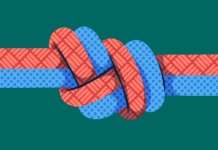Aquaculture in Indonesia has been growing very rapidly in freshwater, brackish water and marine environments. The fast growth of the sector resulted in significantly increased use of aquafeed. Out of 9.3 million tonnes of targeted fish and shrimp feed production in 2015, nearly 50 percent was to meet the requirements of freshwater fish. Availability of quality and cost-effective aquafeed has become a main constraint in the development of aquaculture. Increasing cost of feed in freshwater fish farming in Indonesia (often accounts for 60- 70 percent of the total production cost) has become a major factor that discourages fish farmers to develop their business, because of low profit margins. Achieving feed self-sufficiency for sustainable aquaculture development has become a priority agenda of the Ministry of Marine Affairs and Fisheries of Government of Indonesia. Therefore, responding to the request of the government of Indonesia, a field investigation, and a review study followed by a stakeholder consultation were undertaken in early 2017, to support the formulation of a recently approved project titled “Supporting local feed self sufficiency for inland aquaculture in Indonesia”. The expected outputs of the project are the following:
Output 1: Collection and analysis of baseline information on feed ingredient supply and availability and identification of novel feed ingredients for use in aquafeed and key factors influencing their availability and costs, and nutritional requirements of commonly cultured species in Indonesia;
Output 2: Improved feed formulations for catfish and other key inland fish species with locally available ingredients and strengthened capacity of small-scale feed manufacturers to produce quality and cost-effective feeds;
Output 3: Optimization of on-farm feed management strategies and successful trial of high quality and cost-effective feed formulations for on grower feeds for striped catfish (Pangasius hypophthalmus);
Output 4: Development and promotion of appropriate institutional, policy and regulatory frameworks for aquafeed (including feed additives and quality standards) manufacturing, quality control and management and strategy to improve supply of locally available feed ingredients.
The project will effectively strengthen the capacity of small feed mills to produce high quality and cost-effective feed with increased local ingredients for small freshwater fish farmers and improved feeding management practices.
Source: FAO









